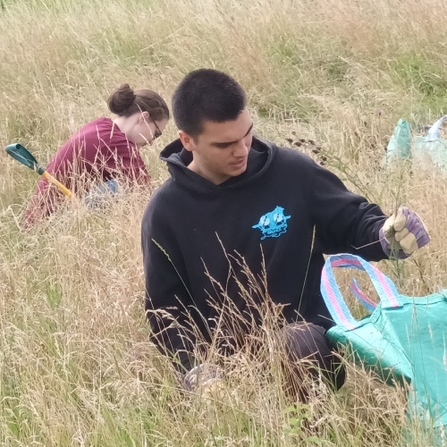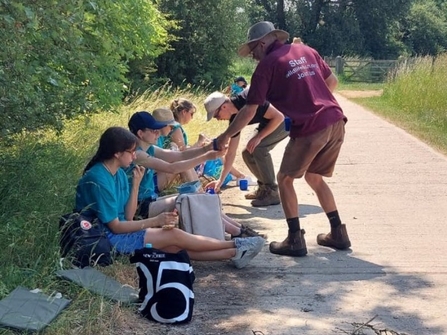Last week I joined a group of staff who had booked a company Wild Work Day, at our stunning Totternhoe nature reserve in Bedfordshire.

These activity days are an opportunity to focus on a manual task, in this case clearing invasive species to help manage the habitat - led by one of our reserves staff the work includes getting stuck into supervised tasks, an outdoor break and guided tour of part of the reserve.
Over the last year, I’ve been fortunate to join a few of these Wild Work Days, and what is striking is the amount of enjoyment and laughter as attendees visibly relax through the day - people working together, or sometimes getting slightly competitive. Sometimes whilst working alongside one of the group, they may talk about a difficult situation they’ve been through, or mental health issues they are experiencing.
NHS England has found that around one in four people in the UK will experience a mental health problem each year. The sayings ‘needing a bit of fresh air’ and ‘clearing our minds’ with a walk and time outside are rooted in reality - scientists and health experts are discovering more about how connecting with nature helps mental wellbeing and cognitive functions. Staff wellness, staff wellbeing, mindfulness and green prescriptions are terms that we are hearing a lot more but we are also learning about the financial benefits to companies and the potential money-saving benefits to the NHS as outlined in an article via The Wildlife Trusts last year.
Professor Kathryn Williams, an environmental psychologist at the University of Melbourne, is one of those investigating the connection between the natural world and our wellbeing: “The areas of the brain responsible for this kind of attention can become depleted by multitasking and high-stimulation modern environments,” she explains. When that happens, we can’t concentrate, make mistakes and get stuck on problems. “But there is something about nature that engages the brain in a way that’s very undemanding and effortless, giving these areas an opportunity to rest and recover.”
By undertaking physical, outdoor tasks, including coppicing, fence building, pond restoration, hay raking and invasive species removal, we are immersed in it, which links to the idea of mindfulness and the space to breathe. We run Wild Work Days and other activities for companies and organisations - as well as the employee wellness benefits, they are an essential part of funding our work and getting more people outdoors. We know that it's only by spending time with wildlife that people will want to preserve it and learn more about the LOCAL impact of the climate crisis.


